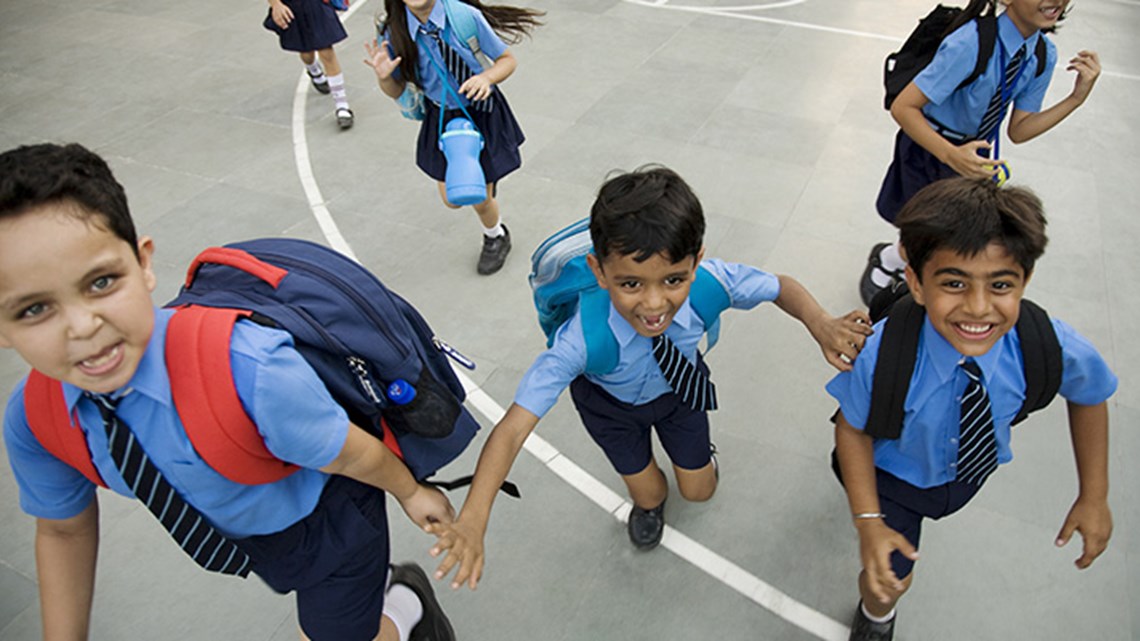Promoting Healthy Habits: Hygiene in Schools
Helping to keep your children healthy at school through good hygiene.
Whether your child is starting school for the first time or returning after the holidays, mixing with lots of other children will expose him or her to many more germs than there are at home. While you can’t prevent contact with all germs (and remember that exposure to some germs is a good thing), you can help reduce the risk of your child picking up an infection through healthy hygiene habits.
How do germs spread at school?
School children often pick up cold and flu viruses or tummy bugs that can lead to diarrhoea. These infections can spread very quickly from child to child by touching a contaminated surface. Germs also spread very quickly in the air via coughs and sneezes, as well as by eating contaminated food.
Why is good hygiene important?
Once your child becomes infected, germs can quickly spread to the rest of your family at home. Bouts of the common cold and upset tummies are common at the start of a new term – both in schools and families. So, helping your child understand about good hygiene will go a long way to helping them and the rest of your family stay healthy.
Avoid spreading cold and flu viruses
Although vaccinations can protect your child from some serious diseases such as tetanus, diphtheria and whooping cough, injections cannot protect children from every type of harmful bacteria.
Top tips for good school hygiene
1. Keep hands clean
Thorough hand washing is the single most effective way to help prevent the spread of infections in schools. Teach your children how and when to wash their hands (rubbing the hands together for at least 20 seconds using soap and clean running water). Always wash hands:
- After using the toilet
- Before eating
- After playing outside
- After touching something dirty
- After coughing, sneezing or blowing their nose
- After touching a dirty tissue
- After petting/stroking animals
- Whenever hands look dirty
Put a pack of Dettol Hand Sanitiser in your child’s bag or lunch bag so that they remember to use it before eating.
2. Coughs and sneezes spread diseases
Teach your children to cover their nose and mouth with a tissue when coughing or sneezing to stop germs from becoming airborne. Throw used tissues in a bin and always wash hands with soap and water afterwards.
If there isn’t a tissue available, encourage your child to sneeze or cough into the crook of their elbow instead of their hands, to reduce the spread of bacteria.
3. Healthy diet
Whether your child has a packed lunch or a school dinner, a varied and balanced diet will help protect their health and promote proper growth and development. Eating properly also aids concentration during lessons.
Preparing a packed lunch
Make sure you wash and dry your hands before you start making a packed lunch. Your kitchen surfaces should also be clean and disinfected. Then:
- Check all foods are within their best-before dates
- Use an airtight, rigid lunch box that is washed and dried before and after use
- Wash fruit, salad and vegetables thoroughly in fresh clean water
- Try to prepare food fresh each day, as there will be less opportunity for germs to grow
4. Drink plenty of water
Water is much healthier than drinks that are high in sugar, sweeteners, additives and caffeine. Encourage your child to drink plenty of water throughout the day, as even slight dehydration can lead to poor concentration, lethargy, irritability and headaches.
Dealing with Illness
If your child is unwell, keep them away from school until they are fully recovered and feel able to join in. If they come back too early, they risk spreading their germs to other children.
As a rough guide, keep children away from school when suffering from the following infectious diseases:
Chickenpox: For five days after the rash appears
Vomiting and diarrhoea: Until 48 hours after the last episode of vomiting or diarrhoea
The Flu: Until completely recovered
Measles: For four days after the rash appears
Bacterial Meningitis: Until completely recovered
How you can help:
As well as encouraging good hygiene in children, you can also help prevent the spread of germs in school by following these basic steps:
- Keep school bags clean and free from food remnants, especially if your child carries a packed lunch to school
- Gym clothes should be brought home once a week for washing
- Make sure your children change their socks and underwear daily
- Wash school uniforms on a high temperature to kill bacteria
- Don’t forget to pack Dettol Instant Hand Sanitiser, it kills 99.9% of germs instantly, without water
Disclaimer: All reasonable steps have been taken to ensure the accuracy of the published material (“Material”), however the Material shall not be treated as medical advice in any manner. The Material is not intended to be a substitute for professional medical advice, diagnosis or treatment. Please consult a qualified doctor for any form of medical advice and guidance. The Material is published without warranty of any kind, either expressed or implied. The responsibility for the interpretation and use of the Material lies with the reader. In no event shall Reckitt Benckiser (India) Private Limited or its affiliates be liable for any damages or any other consequence arising from the use of the Material.”

